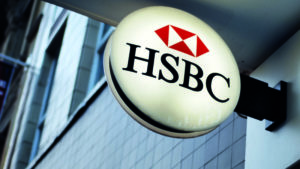After a dismal few years, it’s been a better time for UK equity income in the last few months. It has outpaced other regions and other approaches, with many funds benefiting from the ‘value’ revival. For battle-scarred investors, the question is whether this strength can continue and if so, which type of equity income funds might lead the way.
After gracing the bottom of the performance tables, UK equity income is having a moment. The average fund in the IA Equity Income sector is up 29% over the past six months, according to Trustnet as at 30 April, only beaten by the UK Smaller Companies sector. The average investment trust has done even better, up 38.8%.
Not all UK equity income funds have fared well
Although the majority of funds have done well, not every UK equity income fund has benefitted equally. The strength of UK equity income in recent months has been driven to a large extent by the rotation into value stocks on the back of economic recovery. There is a substantial cross-over between income and value, but it is not a perfect relationship. Those equity income funds with a value bias have done particularly well – Jupiter, JO Hambro, Schroder – while those with a quality bias have not kept pace.
There is much to support continued strength in more economically cyclical areas. Economic recovery in the UK continues at pace. Clive Beagles, co-manager of the JO Hambro UK Equity Income fund, says: “The industrial economy has led the early stages of recovery. The baton should be taken up by the consumer, where there are excess savings and pent-up demand. We are likely to get back to previous levels of GDP far quicker than for the 08/09 crisis.”
This has translated into rising earnings for many companies. Beagles says he and co-manager James Lowen are seeing earnings coming back strongly, with some companies presenting unsolicited trading statements to the market revising earnings by as much as 30-40%. This is before the recovery unlocks and, for them, suggests that forecasts are simply too low.
Dividends returning
Equally, there are clear signs that dividends are coming back. The most recent report from Link Group showed half of UK companies either increased, restarted or held their dividends steady in the first quarter of 2021, compared to just one third in Q4 2020.
Charles Luke (pictured), manager of the Murray Income trust, says: “We’ve seen a rebasing of dividends. We’re also seeing improving earnings, which put companies in a better position to grow their earnings from a lower level.”
Valuations are also a clear point of differentiation. Beagles says that while value stocks have caught up somewhat in recent months, relative valuations to the rest of the market still look extreme. “On the value versus growth axis, the market was very distorted before Covid… despite the recovery in value, it is still very cheap relative to its history.”
At the same time, if inflation rises higher, it should support value parts of the market. Historically, it is areas such as real estate, banks, metals and mining and energy that have done best at times of higher inflation.
Beagles believes inflationary pressures are mounting. “The key issue during this recovery phase is the profile for inflation. Global supply chains had become very extended and the pandemic has made people think about bringing crucial industries onshore rather than offshore… Also, the Fed has made a big policy change and I suspect the market isn’t recognising how significant it is. It has said it will let policy run looser for longer. Inflation may run higher than 2% for some time.”
‘Dash for trash’
However, the rally at the more extreme end of the ‘value’ market seems unlikely to endure. Luke says: “We’ve seen an extreme ‘dash for trash’, so companies that looked like they might not survive, and then pulled through, have done well. However, they can only get this performance benefit once and we are very unlikely to see this extreme level of rotation in the market again.”
This view is supported by the recent dividend data. It is clear that dividends in some sectors are not re-emerging at the same pace. Where dividends have restarted it has been in areas such as housebuilding (Persimmon) and financials (Investec, Aviva). In contrast, the oil sector, struggling retailers and some travel and leisure companies (Easyjet) are still cutting.
Equally, there are still problems reconciling ESG and yield. ESG is not about to disappear and may hold back the performance of ‘old economy’ value names. Income managers are handling this in different ways. Luke points out that the world still needs oil and gas, or key metals, so he is comfortable investing in these sectors as long as the companies involved are investing in the energy transition and demonstrating an understanding of the issues (by, for example, linking emissions to remuneration). In contrast, the world doesn’t need tobacco and is harmful even if taken in moderation, so he avoids it in his portfolio.
With this in mind, the performance in the UK equity income sector may be more even-handed over the remainder of the year. The sector as a whole looks well-supported by a stronger UK economy and higher earnings and there is plenty to suggest the rotation into value can continue. However, the ‘dash for trash’ may have largely run its course, leaving investors more focused on fundamentals from here.







